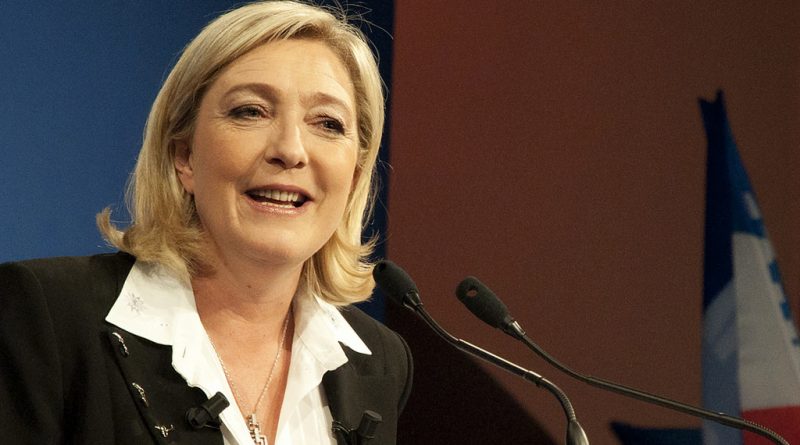Europe After Trump: Upcoming Elections in European Countries
With more than 270 votes in the electoral college, despite losing the popular vote for Hillary Clinton, Donald Trump is the winner of the 2016 USA Presidential elections. The Republican candidate, known for his controversies over gender issues and his conservative, populist, racist and anti-immigration speech, is the new inhabitant of the White House.
The debate did not wait: will the echoes of Trump’s victory reach Europe for the 2017 elections? Some European countries will hold election and right-wing parties have been hailing Clinton’s defeat and hoping for the return of the nationalist spirit.
Austria
With the repetition of the presidential elections scheduled for December 4 2016, Austria has been witnessing its right-wing party – the Freiheitliche Partei Österreichs (FPÖ) – gaining more and more popularity in the polls. This has been the case especially after its candidate, Norbert Hofer, won the first round with 35.1% of the votes, followed by Alexander van der Bellen of the progressive party Die Grüne Alternative, with only 21.3% of the votes.
The second round of the presidential election was scheduled after irregularities were detected on May 22 2016, whose initial winner had been Alexander van der Bellen, with 50.30% of the votes.
The Netherlands
The Netherlands holds the honors for a complicated year of elections in Europe. On March 15 2017, the Dutch will elect all 150 members of the House of Representatives. The leader of the right-wing party Partij voor de Vrijheid (PVV), Geert Wilders, has been controversial in his statements, promising that “mosques, Islamic schools, and asylum centres will be closed; borders will be shut down with a blanket ban on migrants from Islamic countries; women will be forbidden from wearing a headscarf in public; and the Koran will be banned.” Nonetheless, according to the London School of Economics European Institute, the anti-Islam and anti-EU PVV “has topped some recent polls”.
France
Currently, Marine Le Pen is a name that frightens mostly European Union representatives. The leader of the far-right party Front National (FN) is given as one of the winners of the first round of presidential elections on April 23 2017. According to some polls, Le Pen will dispute the second round with Nicolas Sarkozy or Alain Juppé.
In 2012, the FN candidate won 17.9% of votes in the first round of the presidential election that made François Hollande winner. Also in the regional elections in 2015, Marine Le Pen led the first round, with about 28% of the votes – corresponding to 6 out of 13 mainland French regions. However, in the run-off round, the candidate lost everything. In fact, the FN has always been defeated in the second round of presidential elections due to the “cordon sanitaire.” An example is the 2002 presidential elections between Jean-Marie Le Pen and Jacques Chirac, when the left voted for Chirac in the second round.
If Marine Le Pen goes to a second round with Sarkozi, will the right-wing electorate obey the cordon sanitaire and vote for the former French President? If this does not happen, the Trump effect may be evident.
Germany
Without knowing if Angela Merkel will run again for Chancellor, Germany will face the far-right as a real candidate on August 27 2017. The Alternative für Deutschland (AfD) party has been gaining more and more supporters, especially after criticisms concerning the number of refugees hosted by Germany in 2015 made Merkel an unpopular Chancellor.
The AfD – which uses a populist anti-immigration discourse and promises to ban minarets and burqa – is “represented in ten of Germany’s 16 regional parliaments and polling at up to 15% nationally.” The party had already obtained, in 2015, 21.9% of the votes in the north-eastern state elections in Mecklenburg-West Pomerania.
The world is changing and the US elections, as well as the Brexit, are examples of this. Donald Trump is now the model that these leaders intend to follow. The anti-European and nationalist spirit, the economic crisis, and the influx of migrants, combined with the ineffectiveness of immigration policies, are commonplace in the programs and criticisms of all far-right parties seeking to regain the ‘splendor’ of the European continent. For a better understanding on the subject, I recommend The New York Times article “How Far Is Europe Swinging to the Right?” or the Público article “A Ameaça do Contágio.”
Marine Le Pen, Leader of the French party Front National, Photo by Global Panorama / CC BY-SA 2.0
![]() This work is licensed under a Creative Commons Attribution-NonCommercial-ShareAlike 4.0 International License.
This work is licensed under a Creative Commons Attribution-NonCommercial-ShareAlike 4.0 International License.




